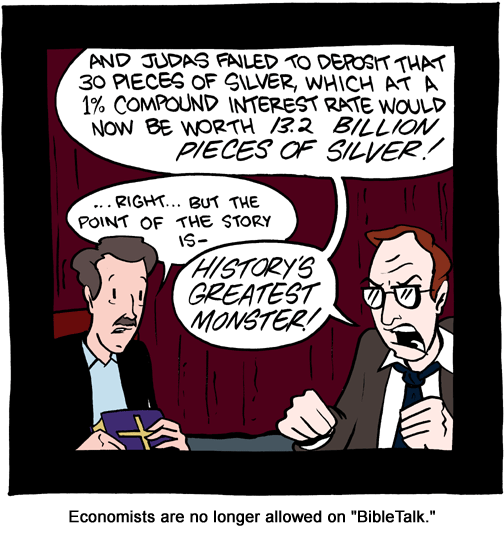My post 4 Ways to Flog the Inner Impulse Shopper is up in Free Money Finance’s March Money Madness tournament. Please take a moment to vote for me(Flog).
Thank you. That is all.
The no-pants guide to spending, saving, and thriving in the real world.
My post 4 Ways to Flog the Inner Impulse Shopper is up in Free Money Finance’s March Money Madness tournament. Please take a moment to vote for me(Flog).
Thank you. That is all.
This is the complete collection of the Story of Sammy. Sammy is a guy I met after my mother-in-law died in the spring of 2012. My wife and I decided to help him launch a….
Read the stories. It’s better that way.
Part 1, in which we meet Sammy, learn of his dreams and offer to help.
Part 2, in which Sammy jumps into business with both feet, teaching teenagers the value of work.
Part 3, in which Sammy shows us what crackheads and the homeless can accomplish if given the chance.
Part 3.5, in which…holy drama, Sammy!
Part 4, in which I am disappointed.

Dispute resolution has to do with the impartial rectification of conflict between individuals or parties. More specifically it is the utilization and execution of methods that are designed to resolve conflicts. In a case in which there is a dispute between people or groups, often times a third, neutral, party is selected to be an impartial representative for the disputing persons. Although dispute resolution can refer to resolutions both in and out of the court, it mainly applies to disputes that are settled outside of the legal framework of the judicial system.
Two of the most common types of dispute resolution are known as adjudicative and consensual. While adjudicative resolution requires a third party to mediate the outcome, such as a judge or jury, and usually involves some form of litigation, consensual resolution is the attempt to solve the issue between the two disputing parties without involving a third party, although at times a neutral arbitrator will be selected to preside over the case, though they will often be there not so much for authoritative purposes but more as a council to keep things fair. There is also a third upcoming type of dispute resolution, online dispute resolution, or ODR, which has become more popular in recent years with the rise of the internet’s prominence in daily life, but it is mainly the application of traditional consensual resolution practices, only adapted to the online environment.
Many disputes can be solved simply through adherence to the law, however, sometimes issues arise that the legal structure isn’t equipped to handle, and so a third party is chosen to resolve the conflict. These types of conflict fall within the jurisdiction of the law and so will be relegated to the political system for arbitration. Judicial resolutions are conflicts that will be, hopefully, settled by the court. In the United States, this is often the case with dispute resolution. This form of resolution usually involves litigation. This is the use of outside individuals to argue for or against the disputing parties. In a courtroom, the lawyers are the litigators, while the judge and jury listen to the arguments in order to come to their decisions.
Extrajudicial resolution is non-court settlement of conflict. Also known as alternative dispute resolution, or ADR, this is what people are usually referring to when discussing dispute resolution. ADR is usually more efficient, cost effective, and less time consuming than judicial resolutions. Extrajudicial resolution concerns various types of ways to settle conflict. These include arbitration and mediation. In arbitration neutral individuals will listen to both sides of an argument and render a decision based on evidence. Unlike the court systems, this proceeding doesn’t necessarily include a binding agreement with the parties.
Mediation is used in extrajudicial resolution as a way to open a dialogue between conflicting parties. The idea is to use a trained neutral third party in order to come up with unique solutions to solve the issue. A mediator is trained to be both an effective negotiator as well as an excellent communicator. A mediator is like a judge in that they cannot take sides, and they do not give legal advice either. Their decisions are not obligatorily followed, though they tend to be followed since the mediators are trained to make decisions that benefit both parties.
The techniques used in dispute resolution can be used both in and outside of the court room. It is often used by individuals who wish to speed up the process by not having to get into the political system. However, they are useful in many cases where individuals wish to come to the most beneficial agreement for all the parties involved.
Doctor appointments, speeding tickets and too much work. That’s what this week has been made of.

Finance links:
Why do the non-politician folks who want taxes raised think a fund for voluntarily paying extra is stupid? If they were sincere, they’d be contributing to that from the start. As it is, it’s just a demonstration of either hypocrisy or a looting spirit.
Paying off your Visa by charging it on…your other Visa doesn’t accomplish anything for you or for Visa. Even if you are GM and Visa is the federal government.
My wife and I are thinking of starting a potluck/boardgame night. Boardgames are a cheap way to spend a fun evening.
Misc links:
The iFixit Blog. Dedicated to teaching you how to fix your own gadgets.
I am not only a geek, I am a Halloween geek. The Stationery of Horror is full of want.
The Pareto Principle works. Even at work. I get 80% of my value from the time I spend writing blog posts. Err. Nevermind.
…or you will never be happy.

A newer car, a bigger TV, a nicer house, a fancier phone, better tickets, more friends, more gadgets, more toys…more, bigger, better…whatever.
It’s all a disappointment.
Nothing on that list will provide happiness. If that is your goal, you will spend your life miserable. It’s not possible to buy happiness, either directly or indirectly through the accumulation of “stuff”. A purchase may fuel your ego or trigger endorphins, but it is all temporary. There’s no sustainable happiness in the “high” of the latest purchase.
The search for stuff pales in comparison to the search for meaning. Find your passion and follow that. Chase that to the ends of the earth, and come back feeling fulfilled. Feel something that will last longer than the drive home or the next product release.
Find contentment. At some point there is a satisfying level of “enough”. More than that, you feel empty. Less, envious. Find enough and stop there. Find the level that allows you to do the things you need to do and some of what you want to do. Find your balance point and be happy with it.
Living life constantly disappointed that you don’t have more is a sure way to live life disappointed. How do you find your balance point?
Also, have you started the Happiness Challenge?